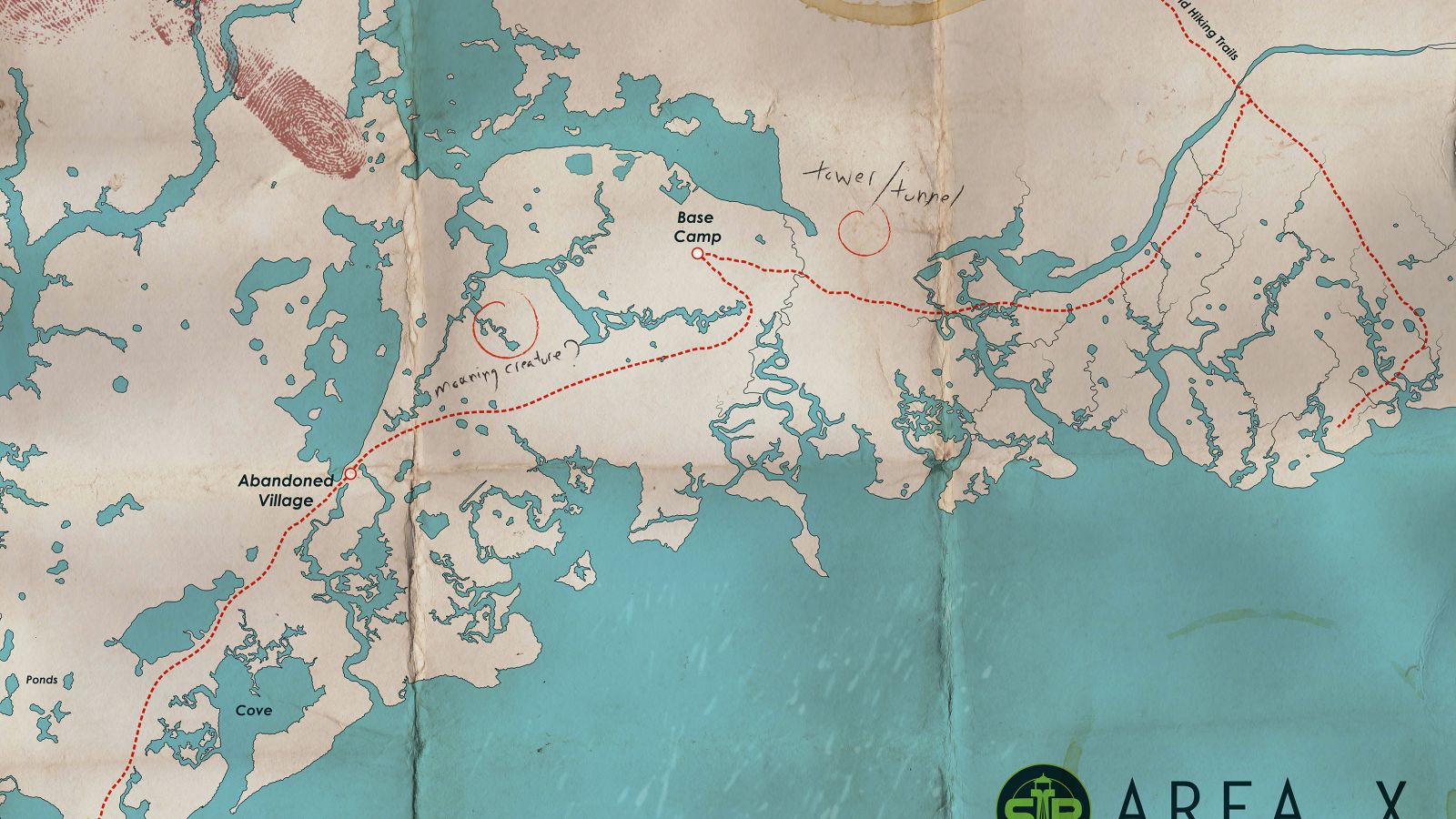Annihilation, Jeff VanderMeer
Score: 8
Spoilers? Nope.
Be sure to check out my Scoring Scale to see what the score means.
Annihilation by Jeff VanderMeer is a fantastic read, and I would recommend it to anyone. I am relatively new to the bio-punk genre, and I’m not even sure if this sits squarely in it, but I’ve been loving it. And not just for the genre, the book itself was suspenseful journey into…well, it was definitely something, though I have no idea what. It’s weird, mysterious, and gives a sense of ominous doom that makes it hard to walk away from. It also left me thinking after I was done. A total win in my book. (Full disclosure, I just realized that they’re making this into a movie in 2018 as I was writing this post so, now I feel kind of silly reviewing something that a lot of people may actually watch.)
So let’s start of with the basic premise: there is a mysterious Area, aptly named Area X, where a similarly mysterious government agency called the Southern Reach send expeditions from which no one returns…except those who do! That’s right! Sometimes, people come back from this secret Area X, but when they do, they’re changed. They don’t remember anything, they’re lucid, but never really able to engage with the normal world. For some reason, people keep going into Area X to plumb it’s depths, but to no avail. The area is transitioning into some other type of ecosystem, but no one knows what - only that it’s expanding…
The story follows the journey of an all female expedition, made up of a Psychologist, an Anthropologist, a Surveyor, a Linguist, and a Biologist. Our story follows the Biologist and her observations of the dangerous and mysterious world of Area X. The world is transforming nature into something that seems both human and far from it. It’s got a strong, stoic lead, and at one point there’s a creepy person-eyed dolphin. Just that sentence checks a lot of boxes for me!
One of the most fascinating aspects of the book is that the Biologist is just weird. It was actually somewhat off-putting as I read.
The story follows the Biologist as she treks through Area X, all the while recalling the life before hand that brought her there. The descriptions of Area X are visceral depictions of a gray and brown wintry marshland. In it, everything seems as it should be on it’s surface, but it’s permeated by a profound wrongness. Each character has to struggle with a different type of discomfort with the surroundings. And all of them struggle except for the Biologist. She, unlike the others has always longed for the wilderness. Throughout her back story we learn of her escapes from her “real life” into small havens of wilderness that pop up in the interstices of society: an neglected pool or an abandoned and overgrown lot.
One of the most fascinating aspects of the book is that the Biologist is just weird. It was actually somewhat off-putting as I read. She describes her life prior to her expedition as a sepia-toned fumbling to fit in among other humans. More than anything she simply wants to escape and go observe the wonder of nature, and she laments the quickly disappearing wildernesses of the world. It’s as if in every scene where she has to interact with other humans, she is the only one who can see that the wilderness is calling, but it’s also disappearing from view.
VanderMeer uses these back stories to fill in plot holes, and at times they seem a bit contrived. For example, the Biologist describes difficulty getting along with her husband and a deeply strained marriage because, essentially, “he’s gregarious and I’m not.” I’m an introvert who struggles with mild/medium social anxiety, but even to me that seems like a slim excuse for the type of relationship they have.

Similarly, one character is haunted by dreams for most of his life, only to realize that the dreams were scenes from a movie and not to be feared. Being haunted by nightmares as a child seems like a pretty tragic experience, but VanderMeer just glosses over it. Later on, that fact helps explain the dreamlike quality of Area X, so it helps fill in a hole, but it feels a bit like it felt more like shorthand to get from point A to B instead actual character development. At times the interplay between the characters feels like VanderMeer is just saying, “just trust me, these people don’t get along”, or “this random back story doesn’t really develop the character, but it helps fill a plot gap, so I’ll just add it here.” It wasn’t bad, but I often found myself just needing to take characters at face value instead of really groking with their motivations and actions.
It’s clear that VanderMeer is painting a picture that’s meant to terrify. Human civilization is gone and past, though no one realizes it yet. Nature is alive and vital, though through a weird decay and transformation that leaves everything changed.
More than the characters, what caught me about this book was the fact that central conflicts in the plot are actually terrifying in real life. This story tries to explore the idea of a truly uncontrollable wilderness. While most of the worlds wilderness is receding, there is this one mysterious and unconquerable pocket…and it’s advancing. That thought of a wilderness that’s out of our control constantly scratches at the back of your mind as you read. For me, what is so powerful about it is that we often forget that nature truly is uncontrollable.
It really hits close to home for me because of, well, the very premise of this blog: I work in a part of Seattle that’s really hard to get to via public transit. Taking the bus would add at least an hour my 2.5 hour daily commute, so I commute to and from work alone. But I do this with thousands of others. It’s easy to pretend that a society that is so nonchalant about the environment will never have to suffer the consequences, but nature is not something to be trifled with.
In VanderMeer’s Area X, nature is master of all. Humans are at best, temporary visitors, only fit to be enfolded into the dangerous and mysterious world there. As the Biologist records her experience, it’s clear that VanderMeer is painting a picture that’s meant to terrify. Human civilization is gone and past, though no one realizes it yet. Nature is alive and vital, though through a weird decay and transformation that leaves everything changed. No one has ever made it through that transformation and come out recognizable. It’s only the Biologist’s extreme oddness that makes her capable of staying aware as the transformations take place.
In a world like this, only change is possible. Most scifi asks us to look at our what we as a society are most afraid of and ask, “how bad could it get?”. Annihilation asks us to look at a world where nature cannot be tamed and only complete and utter transformation gives a glimmer of a hope of survival. It made me wonder how different that is from our world. What would it take to keep the globe from warming, to keep our oceans from becoming poisonous with debris, or to keep our forests and wilderness intact? Only a drastic change. And without it, nature will continue to advance, to strike back.
It’s a beautify look at some of our society’s deepest environmental fears, and it does this all in the middle of captivating imagery and a mysterious plot that kept me glued to my speakers.
